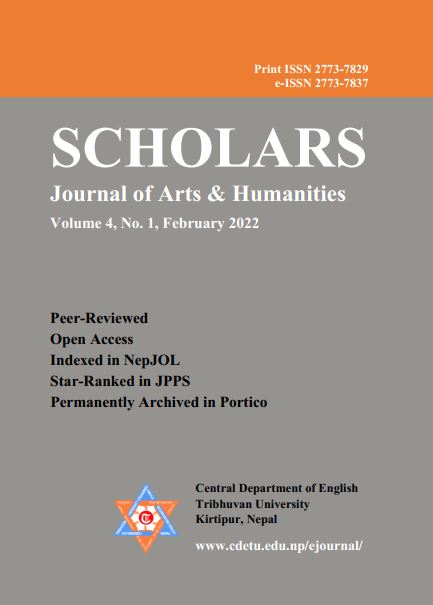Reading Polity from the Margin in Arundhati Roy’s The Ministry of Utmost Happiness
DOI:
https://doi.org/10.3126/sjah.v4i1.43057Keywords:
Discrimination, subalterns, subjectivity, resistance, marginalAbstract
This paper explores the experience and perception of the marginal people and their endeavor to contrive social harmony in the society, eliminating all sorts of discrimination. In this paper, Arundhati Roy’s novel The Ministry of Utmost Happiness (2017) has been studied and analyzed to explore this aspect of life in India. To resist the domination of hegemonic power, the dominated people develop a secular living place in the graveyard. The paper uses the theories of subaltern and culture studies to dig out the issues of resistance, subjectivity and agency. The theoretical parameters of Ranajit Guha and Partha Chatterjee have been used to analyze the primary text. The novel presents the biasness of political system that exclude the persecuted group of Indian society. In return, the vulnerable group builds a society in a gloomy and mournful place as a resistance to the supremacy of upper-class Hindus, revealing their subjectivity and agency. This revelation of subjectivity and agency of marginal people critique the polity of the nation in the novel. The finding adds new knowledge to the existing scholarship, departing from other research works.
Downloads
Downloads
Published
Versions
- 2022-02-18 (2)
- 2022-02-13 (1)
How to Cite
Issue
Section
License
Copyright (c) 2022 Central Department of English, Tribhuvan University and Authors

This work is licensed under a Creative Commons Attribution 4.0 International License.
© Central Department of English, Tribhuvan University and Authors




